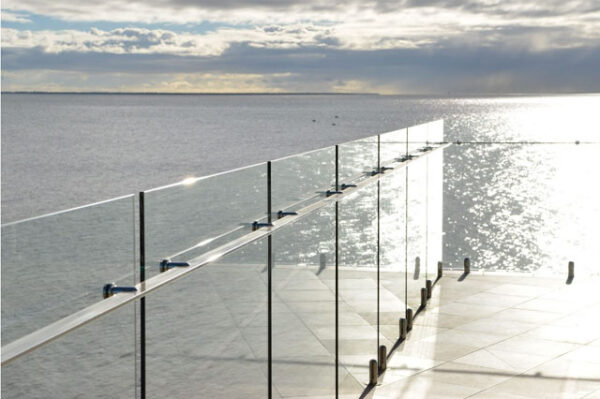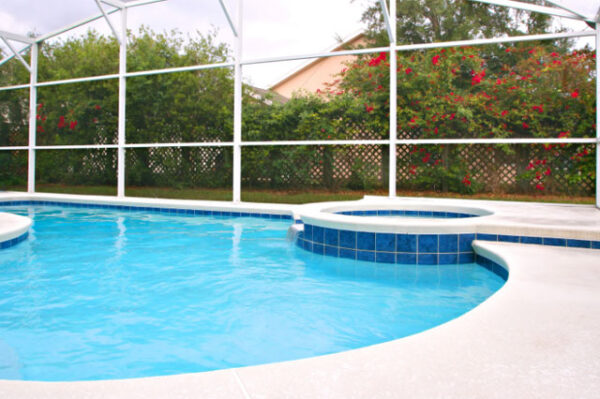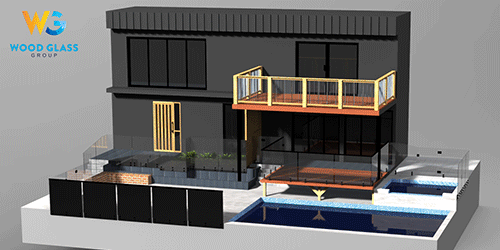The Ultimate Guide to Pool Fences: Safety, Styles, and Installation
Owning a pool comes with the responsibility of ensuring it is safe, especially if children or pets are around. Pool fences are a critical component in preventing accidents and enhancing the overall safety of your pool area. In this guide, we’ll cover everything you need to know about pool fences, from safety features to styles and installation tips.
Understanding the Importance of Pool Fences
Why Pool Fences are Essential
Pool fences serve as a barrier that prevents unauthorized access to the pool area, reducing the risk of drowning and other accidents. They are particularly important for households with young children and pets who may not be aware of the dangers a pool can present.
Legal Requirements for Pool Fences
Many regions have specific laws and regulations regarding pool fencing. These laws are in place to ensure the safety of the community. It’s essential to understand and comply with these regulations to avoid legal issues and ensure maximum safety.
Types of Pool Fences
Glass Pool Fences
Glass pool fences are popular for their modern look and unobstructed views. They are made from toughened glass panels that are durable and resistant to breakage.
Aluminum Pool Fences
Aluminum pool fences are known for their durability and low maintenance. They come in various styles and colors, making them a versatile option for many homeowners.
Mesh Pool Fences
Mesh pool fences are an excellent choice for temporary fencing solutions. They are lightweight, easy to install, and can be removed when not needed.
Wrought Iron Pool Fences
Wrought iron pool fences offer a classic and elegant look. They are sturdy and long-lasting, although they may require periodic maintenance to prevent rust.
Wooden Pool Fences
Wooden pool fences provide a natural and rustic aesthetic. They can be customized to match the surrounding landscape but require regular maintenance to ensure longevity.
Key Features of a Safe Pool Fence
Height and Structure
A safe pool fence should be at least 4 feet high, with vertical bars spaced no more than 4 inches apart. This prevents children from climbing over or squeezing through the fence.
Self-Closing and Self-Latching Gates
Gates are a crucial component of pool fences. They should be self-closing and self-latching to ensure that the pool area remains secure even if someone forgets to close the gate.
Non-Climbable Design
The design of the pool fence should prevent climbing. This means avoiding horizontal bars that children could use as footholds and ensuring the fence is smooth and difficult to scale.
Choosing the Right Style for Your Pool Fence
Modern Styles
For a sleek and contemporary look, consider glass or aluminum pool fences. These styles blend well with modern architecture and provide a clean, unobtrusive barrier.
Traditional Styles
If you prefer a more classic appearance, wrought iron or wooden pool fences can complement traditional homes and landscaping. These styles offer a timeless appeal.
Custom Designs
Custom pool fences allow you to create a unique look that fits your specific needs and preferences. You can mix materials and styles to achieve the desired aesthetic.
Installation Tips for Pool Fences
Preparing the Site
Before installing a pool fence, ensure the ground is level and free of debris. This will make the installation process smoother and ensure the fence is stable.
Professional Installation vs. DIY
While some pool fences can be installed by homeowners, professional installation ensures the fence is properly installed and meets all safety standards. Consider hiring a professional for peace of mind.
Maintenance Considerations
Regular maintenance is essential to keep your pool fence in good condition. This includes checking for rust, ensuring gates function correctly, and cleaning glass panels.
Enhancing Safety with Additional Features
Alarms and Sensors
Installing alarms and sensors on pool gates can provide an extra layer of safety. These devices alert you when the gate is opened, helping to prevent unauthorized access.
Pool Covers
In addition to fences, pool covers provide an extra level of security. They prevent accidental falls into the pool and keep the water clean when not in use.
Budgeting for Your Pool Fence
Cost of Materials
The cost of pool fences varies depending on the material. Glass and wrought iron are typically more expensive, while mesh and aluminum are more budget-friendly options.
Installation Costs
Installation costs can add significantly to the overall price of a pool fence. DIY installation can save money, but professional installation ensures the fence is safe and compliant with local regulations.
Maintaining Your Pool Fence
Regular Inspections
Conduct regular inspections of your pool fence to identify any damage or wear. Promptly addressing these issues will ensure the fence remains effective.
Cleaning and Upkeep
Different materials require different maintenance routines. Glass fences need regular cleaning to prevent water spots, while wooden fences may need staining or sealing to protect against the elements.
Final Thoughts on Pool Fences
Balancing Safety and Aesthetics
When choosing a pool fence, it’s essential to balance safety with aesthetics. The right fence should enhance the look of your pool area while providing maximum protection.
Planning for the Future
Consider the long-term needs of your family when choosing a pool fence. As children grow and needs change, your pool safety requirements may also evolve.
Investing in Peace of Mind
Ultimately, investing in a high-quality pool fence is an investment in peace of mind. Knowing that your pool area is secure allows you to enjoy your pool with confidence and relaxation.
Conclusion
Pool fences are a vital component of pool safety. By understanding the different types, features, and installation tips, you can make an informed decision that ensures your pool area is both safe and stylish. Regular maintenance and adherence to legal requirements will keep your pool fence effective for years to come.



